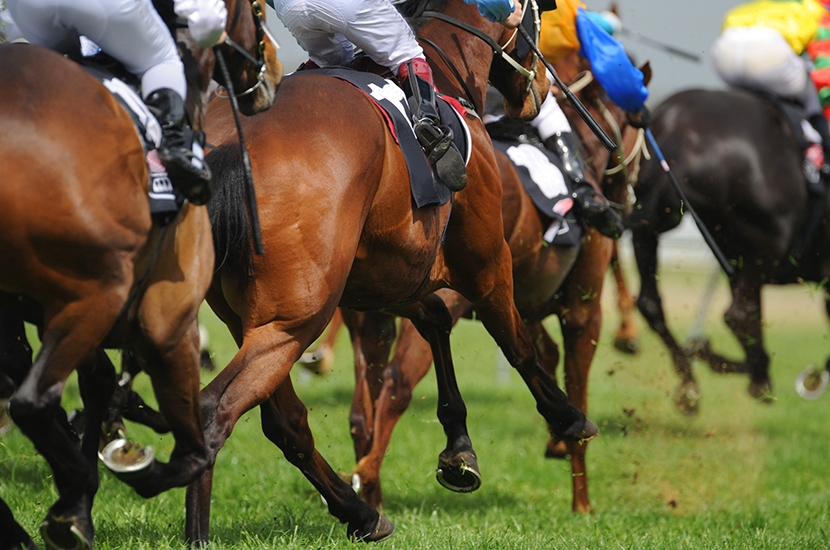Horseracing in Britain, which was suspended by coronavirus on 18 March, is due, as I write, to resume on Monday 1 June at Newcastle. Some French tracks reopened last week but Irish racegoers will have to wait until 8 June. In all cases, including the belated staging of the 2,000 and 1,000 Guineas at Newmarket on 6 and 7 June, Royal Ascot from 16 to 20 June and the Derby and Oaks at Epsom on 4 July, it will be racing behind closed doors.
Thank you, France, for the hors d’oeuvre that served as a reminder of the hot form on the Flat of jockey Pierre-Charles Boudot and, over jumps, of François Nicolle, champion trainer for a second year last year. ‘PC’ broke many English hearts when he swooped past Enable to win last year’s Prix de l’Arc de Triomphe on Waldgeist and he holds the French record with 275 winners in the 2016 season. Ascot says that the Royal meeting will be open to international competitors, but just how many will make it to British racetracks in the short term remains uncertain.
It isn’t just the horses. You also go racing to see what it does to the character of your fellow mortals
Dale Gibson, a favourite of mine in his jockey days and now an impressive executive director of the Professional Jockeys Association, has told us about some of the changes involved in post-virus racing. With no access to saunas, jockeys’ weights will rise by 3lb and there will be reductions in field sizes to a maximum 12 initially (as compared with 18 in France). That will hurt those of us who favour the big-field heritage handicaps such as the Old Hunt Cup and the Wokingham as gambling mediums. Intriguingly, Dale suggested that if jockeys are restricted to one meeting a day, or face restrictions thanks to their international race-riding commitments, then the jockeys’ championship could open up to include the likes of Tom Marquand and Ben Curtis as challengers to the incumbent Oisin Murphy.
What, though, will we miss by being unable to go racing ourselves? Thanks to Ed Chamberlin and the ITV team, always sharp, humane and involved, we will still be able to appreciate the speed and skill demonstrated during the races themselves. We have the best race callers in the world. But no one else can experience for you the buzz around the betting ring, the soft thud of hooves on wet turf, the intensity of a winning jockey punching the post-winning- post air, the collective intake of breath as a favourite stumbles and the instinctive gasp as he falls.
You can pick up clues from the form books about whether a horse likes to lead all the way or relishes the uplift from weaving his way through a pack of tired horses to snatch a last-gasp victory but you need to be there to settle your own mind about the doubtful cases. You need to be on course to dive in quickly enough as the odds collapse against a horse from a yard that you know rarely gets it wrong when the money is down or to see if a trainer is in the lucky yellow shirt he wears when he feels a winner coming on.
If racing is your game you ache to be there for the atmosphere on the days that matter, when A.P. McCoy won his first Grand National on Don’t Push It or Frankie Dettori took his first Derby with Authorized. The impact of the first moment you encounter a Frankel or a Sea the Stars, a Russian Rhythm or a Bosra Sham must be experienced in the flesh, not through a camera lens. Race coverage doesn’t have the time to dwell on incidentals such as Aidan O’Brien tenderly sponging out the mouth or brushing the tail of a Classic candidate. (Asked how he knows he has a winner, he replies: ‘You know by his behaviour, the expression on his face, how he carries on with himself.’ Our trouble is that only Aidan and the horse speak that secret language.)
It isn’t just the horses. You also go racing, the most sociable of sports, to see what it does to the character of your fellow mortals, with the tightest of company accountants splashing out on champagne after backing a winner, severe-looking ladies with permanently pursed lips risking a nonsense hat or a hoisted hem.
You go to encounter a Father Sean Breen, the Irish priest who used to hold a service for the Irish entrants at Cheltenham seeking the blessing of the Almighty: ‘Though we do appreciate, Lord, that it is difficult for you with so many Irish runners,’ or Ginger McCain, who trained Red Rum on the Southport sands behind his car lot, reflecting: ‘Horses are like cars: you’ve only got so much mileage in them and when that’s gone you’ve got nothing.’
Hurrah for what we’re getting back but let us remember how we woke up one morning to find that the provincial theatre where we saw pre-London runs or the little delicatessen that always had our favourite rillettes were no longer there, deemed unviable for lack of support. Let us all go racing again together the moment we can.






Comments